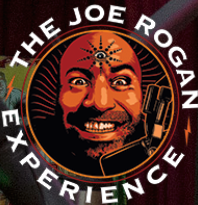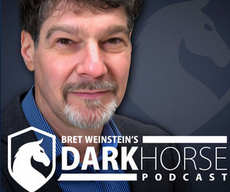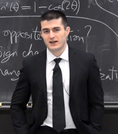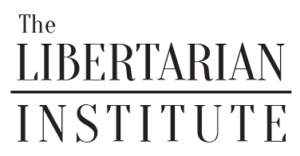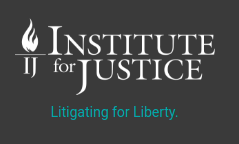Some enlightening and non-traditional links for information, news and ideas:
I don’t spend much time on “main stream” media sites, finding that the points of view are extremely constrained, far too narrow in scope and story selection, and typically follow/promote a heavy political bias. Have you ever noticed how “journalists” often obsess over an empty pseudo-crisis ad nauseum, beating it to death until their handlers can feed them some other garbage to fill the minds of the easily distracted, undiscerning masses?
Meanwhile, real stories of public interest (locally and globally) are ignored, perhaps because they would offend the agenda, the advertisers, or fail to attract the circus show ratings. As a result, I tend to follow alternative, independent and more global sites (recognizing that all sites and authors will have some bias, my own biases tending towards free minds and markets rather than state and mega-corporate controls). More important than bias is that the source not attempt to deceptively disguise that bias in an effort to mislead and disingenuously persuade.
I have witnessed through the early 2020s increasing attempts by large corporations, media, state actors and other well-established power centers (like the controlling entities of Medicine, pharma, academic and scientific journals, and universities) to control and censor information flows. Divisive extremes of overly-simplified political and scientific arguments are utilized for power plays, straw man arguments and manipulation. The fears, unknowns and instability associated with the era’s viral pandemic and social crises have been exploited to stifle discussion and to drive behaviors, submission, control, power consolidation and wealth transfers.
Those that attempt to openly explore, question or criticize the predominant narratives have been labeled as fringe or crazy or spreaders of “misinformation,” threatened with termination or actively terminated from their employments, shamed on or removed/canceled from social media, targeted for online and physical attack, and had their personal information shared online (doxxed) in an attempt to expose them and make them vulnerable. The end result has been a high emotion, low information constraint of open discussion, as well as active or self-imposed censorship.
In these recent years, I have increasingly come to appreciate long-form interviews, discussions and podcasts which can commonly allow 1-3 hours of open and nuanced information sharing, debate, exploration, and the discussion of relevant explanations, history, costs, benefits, outcomes, unintended consequences, and supporting data. This type of interaction is anathema to legacy media and established social media which are threatened by the diffusion of information flows outside of their control. This is also hated by any that attempt to derive benefit from narrow and superficial understandings.
I’m always looking to expand and improve information sourcing from persons that are curious, open and authentic. Some sites that I tend to frequent in that search:
“The Joe Rogan Experience podcast is a long form conversation hosted by comedian Joe Rogan with friends and guests that have included comedians, actors, musicians, MMA fighters, authors, artists, and beyond.” His guests also frequently include physicians, scientists and academics who may not be given an opportunity in mainstream venues to share their views and ideas with the world. Currently, Spotify is hosting his podcast, but is under mainstream media criticism for allowing “misinformation” on his site. Youtube carries many excerpts of his work, but has censored a number of his interviews. In the future, it may fall to freer, decentralized video sharing platforms to carry his (and other disrupters’) interviews, perhaps like Odysee, BitChute and Rumble.
Bret Weinstein, PhD, is an evolutionary biologist who hosts discussions on his Dark Horse podcast that tend to intersect science with society. He and Heather Heying (also a PhD biologist who happens to be married to Bret) co-host podcasts and hold Q&A sessions with subscribers’ questions. Their shows are also carried on Spotify and Youtube, and subject to the same censoring tactics when topics and guests stray from the acceptable.
One of my more recent discoveries is of Lex Fridman, PhD, a Russian-born US immigrant with degrees in computer science and who is, among other things, a researcher at MIT in artificial intelligence. He also is adept at martial arts and guitar. His podcast explores “AI, science, technology, history, philosophy and the nature of intelligence, consciousness, love, and power.” Some of his guests and their discussions are so specialized and advanced in their fields that they can be difficult to follow. Many, however, are simply honest, open and exploratory conversations about us as humans and how we can steer ourselves to survive and thrive as individuals and societies. His YouTube channel.
Breaking Points with Krystal and Saagar. This duo attempts to break through official narratives and seek broader perspective on news items of the day.
Some other Youtube channels that I frequent: Timcast IRL, Dr. Vinay Prasad, Dr. John Campbell, Chris Martenson’s Peak Prosperity,…
Recently, I’ve also found great value in some of the exiled writers and journalists that have found a home at Substack, like Matt Taibbi, Glenn Greenwald, Heather Heying and Caitlin Johnstone, just to name a few. One can sign up for their (typically free) email lists for new articles.
Zerohedge is a politico-economic aggregator with daily analysis of news events, written under the pseudonym of “Tyler Durden.” “On a long enough timeline the survival rate for everyone drops to zero.” Great insights, stories and articles that you’re not going to find on your normal channels on information input. The bias is free market, libertarian, crypto, decentralized. Mainstream media hates this site. Do yourself a favor and bookmark this for daily use.
The Ludwig von Mises Institute – Free market economics, the Austrian school of economics. Mises also has a great online library, with a number of low cost and free e-books and podcasts.
“The Brownstone Institute for Social and Economic Research is a nonprofit organization conceptualized in May 2021. Its vision is of a society that places the highest value on the voluntary interaction of individuals and groups while minimizing the use of violence and force even including that which is exercised by public authority. This vision is that of the Enlightenment that elevated learning, science, progress, and universal rights to the forefront of public life, and is newly threatened by ideologies and systems that would take the world back before the triumph of the ideal of freedom.”
Reason Magazine and The Reason Foundation – Free minds, free markets.
The Libertarian Institute – fantastic contributions from some great minds of our day.
The Institute for Justice (IJ) – IJ gets a donation from me every year. They work on a variety of very important civil liberties topics. “The Institute for Justice is the National Law Firm for Liberty. IJ litigates to limit the size and scope of government power and to ensure that all Americans have the right to control their own destinies as free and responsible members of society.”
Lew Rockwell is a real champion of liberty and markets. He was Ron Paul’s Congressional manager, I believe, was involved in his presidential bids, founded the Mises Institute, has written numerous books, speaks prolifically, podcasts, and is just an all around gentle, quick-witted, warmly sarcastic and honest human being. I’ve attended multiple events that he’s been involved with, and they’re always soul and mind fulfilling. Lew puts together a daily page of 5-10 articles and some additional links that gets the day off to the right start.
Association of American Physicians and Surgeons – A voice for private physicians. AAPS works to put the patient back in charge of the doctor-patient relationship while extracting the many third party intermediaries (government, hospital corporations, insurance corporations, etc) that add layers of bureaucracy and multiples of cost increases from the affordable baseline that is a medical service from doctor to patient.
The Surgery Center of Oklahoma – Dr Keith Smith practices free market medicine, posting all prices online. He is also a fantastic writer and video-blogger on the topics of medical economics and politics. He also is a founding member of The Free Market Medicine Association. Check out those sites’ youtube channels, as well, for some great insight into the non-transparent world of medical economics.
The Tom Woods Show – Tom Woods is a PhD historian, self-taught Austrian economist, affiliate of the Mises Institute, speaker, and author who does a daily 20-30 minute podcast, usually with an interesting interview. He is an upbeat, optimistic guy with a quick wit who entertains as he explores and teaches. He has hundreds of podcasts available for free. Great for the commute or walking the dog.
Robert P. Murphy, PhD, Economic Consulting and Blog – Dr Murphy is a great historian and economist of the Austrian school, friend of Tom Woods and the Mises Institute. You can find his works at his page above and at Mises.org. They make for fun and enlightening reading. He also has some great podcasts.
Cato Institute – The libertarian-leaning Cato Institute seems to drift towards mainstream and status quo more than a veritable libertarian organization should, in my opinion. However, they ask some very good questions, challenge many norms, and offer some atypical insights.
The Future of Freedom Foundation – “The mission of The Future of Freedom Foundation is to advance freedom by providing an uncompromising moral and economic case for individual liberty, free markets, private property, and limited government.” Some great articles and insights.
Foundation for Economic Education – “to inspire, educate, and connect young adults who are not yet familiar with the ideas of economic liberty or the need for strong character in a free society.”
Founded in 1933, the American Institute for Economic Research (AIER) is one of the oldest and most respected nonpartisan economic research and advocacy organizations in the country. With a global reach and influence, AIER is dedicated to developing and promoting the ideas of pure freedom and private governance by combining advanced economic research with accessible media outreach and educational programming to cultivate a better, broader understanding of the fundamental principles that enable peace and prosperity around the world.
Ron Paul-founded or inspired organizations – Ron Paul Institute for Peace and Prosperity, Voices of Liberty, Young Americans for Liberty,…
Some sites that often offer economic insights – 321Gold, Karl Denninger’s Market Ticker, David Stockman’s Contra Corner, Charles Hugh Smith’s Of Two Minds, The Burning Platform,…
The War on Terror, global interventionism, foreign policy, the costs of war,… Antiwar
Not to be confused with the defund the police movements that attempt to obliterate law enforcement, there are legitimate entities that strive for more transparency and accountability in policing efforts. Some police accountability and drug war sites – CopBlock, PINAC (Photography Is Not A Crime), LEAP (Law Enforcement Against Prohibition, rebranded as Law Enforcement Action Partnership),…
The Centre for Research on Globalization is based out of Canada and composed of dozens of authors, journalists and academics who publish articles and books on topics to include civil rights, foreign interventionism, economics, history, police militarization, media disinformation, and more.
The War on Drugs – Drug War Facts, Drug Policy Alliance,…
Some other sites that offer different perspectives than typical media permit: ConsortiumNews, RussiaToday (RT.com), Al Jazeera, Anti-Media.com, …
(…more to come)

